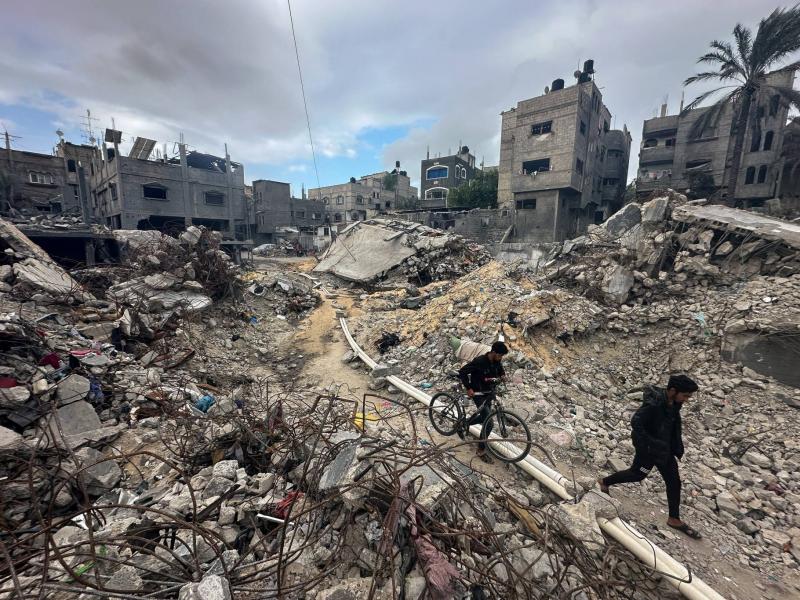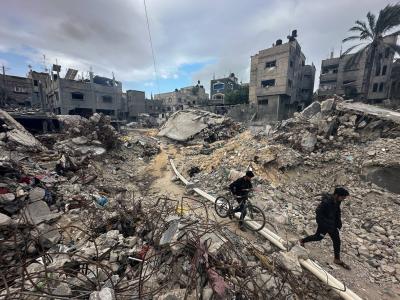Residents of Gaza are hoping for an end to their suffering caused by the war, while Israelis are divided between those wanting to extend the ceasefire until all hostages are released and those fearing compliance with Hamas's demands. The ceasefire was set to end today, Monday, but negotiators from Egypt, Qatar, and the United States sought to persuade Hamas and Israel to reach an agreement for an extension.
In Khan Yunis, located in southern Gaza where hundreds of thousands of displaced persons from the north have sought refuge in tents and schools, large crowds gathered at a United Nations warehouse distributing bags of flour. Sabreen Al-Najjar stated she had waited several hours to obtain flour to feed her children, but the amount she received barely sufficed for two or three days. She expressed her longing to return home and her complete aversion to the war, urging Arab countries to assist Gaza. She prayed for an extension of the ceasefire, mentioning her family lacked sufficient food or clean water, and the recent rains had completely flooded their temporary shelter.
Other displaced individuals highlighted the difficulties they face due to the cold weather and rain, the shortage of food and electricity, and the long queues they stand in daily for basic goods, all while yearning to return home. They all expressed hope for the extension of the ceasefire. Jumaa Al-Araj, confined to a wheelchair, expressed his disappointment in the four-day ceasefire, calling it too short and stating that they still live by candlelight, with no batteries, gas, or electricity, and even struggle to obtain water from distant locations.
### Diverging Views in Israel
On the other side of the border, Israeli focus turned to the fate of the hostages. Fifty-eight individuals have been released in three phases since Friday, with more expected to be freed today from a total of 184 still held in Gaza. Arafat Gerson Raz, a leader of a group for hostage families and supporters, spoke in a square in Tel Aviv that has become the group's center, stating, "We want all hostages back now, and then I want the ceasefire to continue no matter the cost as long as we are bringing them home."
Iddo Siggev, an employee at Intel, expressed his hope that the ceasefire would last as long as Hamas continued to release hostages. He added, "One makes deals when there is some common interest, and as long as Hamas has an interest in the ceasefire due to military pressure or other reasons, they will pay the price, so to speak, by releasing hostages."
Voices within Israeli society varied, expressing a wide range of perspectives on the conflict. Adam Sela, who runs a tourism company, opposed the ceasefire, believing Israel should have held out for a better deal involving the release of all hostages. He stated, "I think we are being lured into a favorable situation for them (Hamas), and as is the case with all conflicts, if it suits one party, it's not suitable for the other."
However, Anat Erel from Jerusalem had a different opinion, expressing, "I really hope the ceasefire continues because violence is not a solution to anything," differentiating between Hamas and the civilians in Gaza. She further stated that Hamas "should be punished, but not everyone else in Gaza should suffer."




